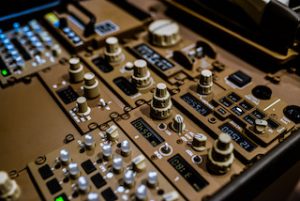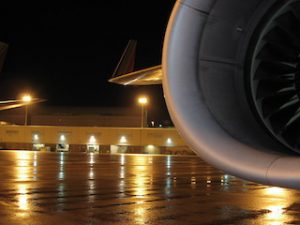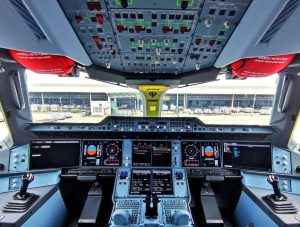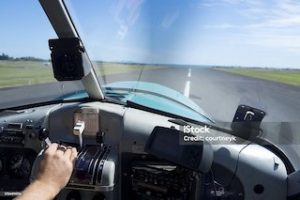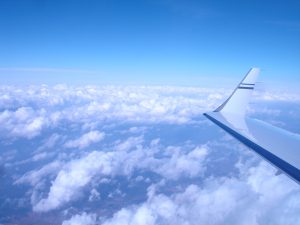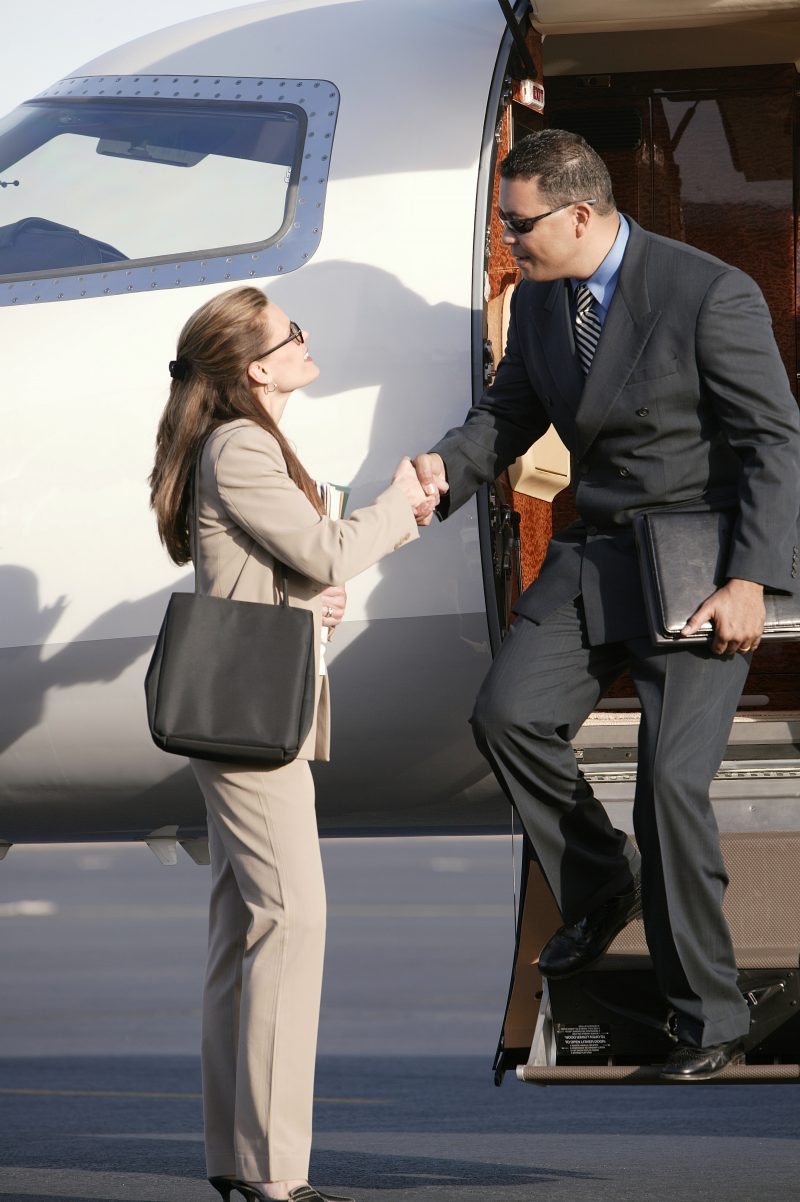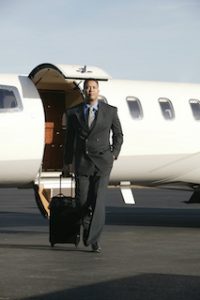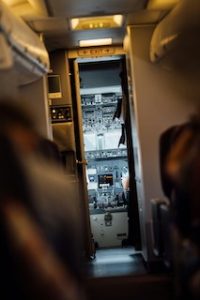Selection Panel Interview In Pilot Selection
 In the journey to becoming a commercial airline pilot, the selection process is marked by a series of rigorous evaluations designed to identify candidates who possess the right combination of technical skills, cognitive abilities, and psychological attributes. After navigating through various phases, including psychometric testing and simulator check flights, candidates face the final and often most challenging hurdle: the selection panel interview.
In the journey to becoming a commercial airline pilot, the selection process is marked by a series of rigorous evaluations designed to identify candidates who possess the right combination of technical skills, cognitive abilities, and psychological attributes. After navigating through various phases, including psychometric testing and simulator check flights, candidates face the final and often most challenging hurdle: the selection panel interview.
The selection panel interview is a critical phase in the pilot selection process. Conducted by a panel of senior airline personnel—typically including experienced pilots, human resources representatives, and sometimes even members of the airline’s management team—this interview serves as a comprehensive assessment of a candidate’s overall suitability for the role. Unlike earlier phases that focus primarily on technical skills and cognitive abilities, the selection panel interview delves into interpersonal skills, cultural fit, and motivation. It is here that candidates must demonstrate not only their qualifications but also their passion, commitment, and alignment with the airline’s values.
Interpersonal skills: The bedrock of effective collaboration
One of the primary areas assessed during the selection panel interview is a candidate’s interpersonal skills. In the highly collaborative environment of an airline, where pilots must work closely with other crew members, effective communication and teamwork are paramount. The ability to interact harmoniously with others, share information clearly, and work toward a common goal is essential for ensuring the safety and efficiency of flight operations.
During the interview, the panel will likely pose questions designed to gauge a candidate’s interpersonal skills. These questions may explore past experiences where the candidate had to work as part of a team, resolve conflicts, or lead a group to achieve a specific objective. For example, a candidate might be asked to describe a situation where they had to collaborate with others to overcome a challenge or a time when they had to communicate critical information in a high-pressure situation.
Effective communication is a key component of interpersonal skills. Pilots must be able to convey information clearly and concisely, whether they are communicating with air traffic control, other crew members, or passengers. Miscommunication can lead to misunderstandings, errors, and potentially dangerous situations. Therefore, the panel will assess not only how well a candidate can articulate their thoughts but also how they listen and respond to others. Candidates who can demonstrate strong communication skills—such as the ability to convey complex information in a straightforward manner, adapt their communication style to different audiences, and remain calm and clear-headed under pressure—are likely to score highly in this area.
Teamwork is another crucial aspect of interpersonal skills. In the cockpit, pilots must work in close coordination with the co-pilot, cabin crew, and ground personnel to ensure the smooth operation of the flight. The selection panel will be interested in understanding how well a candidate can collaborate with others, contribute to a positive team dynamic, and support their colleagues in achieving shared goals. Questions related to teamwork may involve scenarios where the candidate had to work with others to complete a project, navigate a difficult situation, or provide assistance to a team member in need.
The panel may also explore a candidate’s conflict resolution skills. In any team environment, disagreements and conflicts can arise, and it is important that pilots can manage these situations effectively. The ability to resolve conflicts in a constructive manner—by remaining calm, understanding different perspectives, and finding mutually acceptable solutions—is a valuable skill that the panel will likely assess during the interview.
Cultural fit: Aligning with the airline’s values and vision
In addition to assessing interpersonal skills, the selection panel interview also focuses on evaluating a candidate’s cultural fit within the airline. Every airline has its own unique culture, shaped by its values, mission, and the way it operates. The panel will want to determine whether a candidate’s personality, values, and work style align with the airline’s culture, as this can significantly impact their ability to integrate into the team and contribute to the airline’s success.
Cultural fit is an important consideration for airlines because it affects not only how well a candidate will work with others but also how they will adapt to the airline’s operating procedures, customer service standards, and overall work environment. During the interview, the panel may ask questions that probe into a candidate’s understanding of the airline’s culture and their ability to align with it. For example, candidates might be asked to describe what they know about the airline’s mission and values, how they see themselves contributing to the airline’s success, or how they have adapted to different work cultures in the past.
Adaptability is a key trait that the panel will be looking for in this context. The aviation industry is dynamic and constantly evolving, and pilots must be able to adapt to new procedures, technologies, and challenges. Candidates who can demonstrate flexibility, openness to change, and a willingness to learn are likely to be seen as strong cultural fits. The panel may explore a candidate’s adaptability by asking about times when they had to adjust to new environments, take on different roles, or embrace change in their previous experiences.
Values alignment is another aspect of cultural fit that the panel will assess. Airlines operate with a set of core values that guide their decisions and actions, and they want to ensure that their pilots share these values. For instance, an airline that prioritizes safety above all else will want to see that a candidate has a strong commitment to safety and understands the importance of following procedures meticulously. Similarly, an airline that emphasizes customer service will look for candidates who are customer-focused and dedicated to providing a positive passenger experience. During the interview, candidates may be asked to discuss their own values and how they align with those of the airline.
The panel may also assess a candidate’s work ethic and integrity, as these are important components of cultural fit. Pilots are entrusted with significant responsibilities, and airlines want to ensure that their pilots are honest, reliable, and committed to doing the right thing, even when no one is watching. Candidates who can demonstrate a strong work ethic, a sense of responsibility, and a commitment to ethical behaviour are likely to be viewed favourably by the panel.
Motivation and passion: Demonstrating dedication to the profession
One of the most important aspects of the selection panel interview is the assessment of a candidate’s motivation and passion for becoming a pilot. The panel will want to understand not only why the candidate has chosen this career path but also how committed they are to the profession and the airline.
Motivation is a key factor that the panel will explore, as it provides insight into a candidate’s drive, determination, and long-term commitment to the role. The panel will likely ask questions that delve into the candidate’s reasons for pursuing a career as a pilot, their experiences that have shaped this decision, and their goals for the future. For example, candidates might be asked to describe what inspired them to become a pilot, what they find most rewarding about the profession, or how they have prepared themselves for the challenges of the job.
Candidates who can articulate a clear and compelling career vision are likely to make a strong impression on the panel. This includes demonstrating an understanding of the demands of the profession, as well as a commitment to continuous learning and professional development. The panel will want to see that the candidate is not only passionate about flying but also dedicated to growing and evolving as a pilot throughout their career.
Passion is another critical element that the panel will assess. Pilots who are genuinely passionate about their work are more likely to be engaged, motivated, and committed to excellence. The panel will be looking for signs that the candidate has a deep-seated love for aviation and a genuine enthusiasm for the role. This might be reflected in the candidate’s tone of voice, body language, and the way they speak about their experiences and aspirations. Candidates who can convey their passion for flying in a sincere and authentic manner are likely to stand out in the interview.
In addition to motivation and passion, the panel will also assess a candidate’s **commitment** to the airline and the profession. This includes evaluating whether the candidate is likely to stay with the airline for the long term and contribute positively to its success. The panel may ask questions that explore the candidate’s loyalty, perseverance, and willingness to go above and beyond in their role. For example, candidates might be asked how they handle setbacks, what they do to stay motivated during challenging times, or how they plan to contribute to the airline’s growth and success.
Preparing for the selection panel interview: Tips for success
Given the importance of the selection panel interview in the pilot selection process, it is essential that candidates are well-prepared for this phase. Success in the interview requires more than just technical knowledge and flying skills; it requires a deep understanding of the airline’s culture, strong interpersonal skills, and a genuine passion for the profession.
One of the most effective ways to prepare for the selection panel interview is to research the airline thoroughly. Candidates should familiarize themselves with the airline’s mission, values, culture, and recent developments. This knowledge will not only help candidates answer questions about cultural fit but also demonstrate their interest in and commitment to the airline.
Candidates should also practice **interview techniques** that allow them to articulate their thoughts clearly, stay calm under pressure, and engage with the panel in a professional and personable manner. This might involve rehearsing answers to common interview questions, participating in mock interviews, or seeking feedback from peers or mentors.
Self-reflection is another important aspect of preparation. Candidates should take the time to reflect on their own experiences, values, and motivations, and think about how these align with the airline’s expectations. This will help candidates provide thoughtful and meaningful answers during the interview and demonstrate their suitability for the role.
Laminar Sim offers specialized training programs that are designed to help candidates excel in the selection panel interview. These programs provide valuable insights into what the panel is looking for, as well as practical tips and strategies for showcasing one’s strengths and leaving a lasting impression on the decision-makers. By participating in these programs, candidates can build the confidence and competence needed to succeed.

